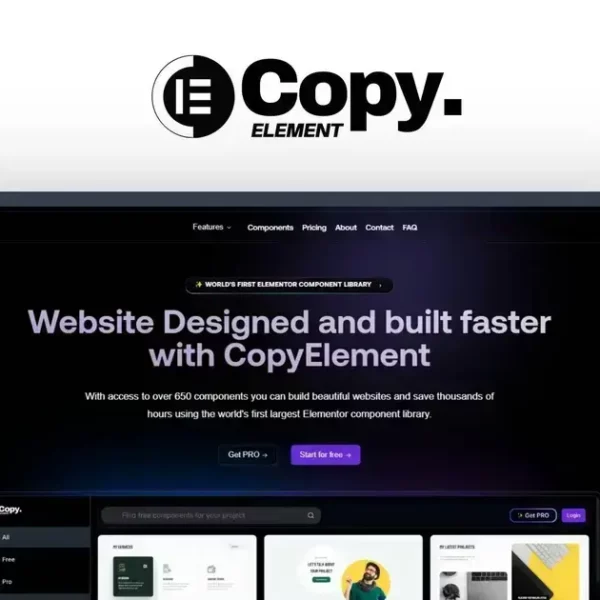Understanding CRM pricing is crucial for businesses to maximize value and efficiency. By evaluating pricing models and features, businesses can choose a CRM that enhances customer experiences, improves sales processes, and supports growth without overspending.
CRM pricing is a crucial aspect that can significantly impact your business. Understanding the various pricing models available, along with the factors that determine these prices, will help you make an informed decision. The cost of CRM solutions varies across providers, and knowing what to look for is key. In this article, we’ll delve into the different CRM pricing models, the factors that influence pricing, and valuable tips to help you choose the right CRM solution for your needs.
Understanding CRM Pricing Models
Understanding CRM pricing models is the first step in selecting the right Customer Relationship Management system for your business. There are various pricing models available, each suited for different business needs and budgets. The most common models include:
1. Per User Pricing
This model charges businesses based on the number of users who will access the CRM. It’s clear and straightforward, making it easy to understand costs. Smaller teams often prefer this model as it aligns closely with their size and needs.
2. Flat Rate Pricing
With flat rate pricing, businesses pay a single fee for a set number of features or users. This model can be beneficial for larger teams, as it allows for predictable budgeting without worrying about additional costs incurred by extra users.
3. Tiered Pricing
This model offers different packages with various features at different price points. Businesses can choose a tier that fits their needs while having the option to upgrade as they grow. This flexibility is an attractive feature for many companies.
4. Freemium Model
The freemium model allows businesses to start with a basic version of the CRM for free, with the option to pay for advanced features. This approach is beneficial for small businesses that want to test the platform before committing financially.
5. Subscription-Based Pricing
In this model, businesses pay a recurring fee (usually monthly or annually) for continued access to the CRM software. Subscription-based pricing provides flexibility and ensures that businesses always have the latest updates and features.
Understanding these CRM pricing models will help you assess which option best aligns with your organizational needs and budget, ensuring you make an informed decision.
Factors Affecting CRM Pricing

Factors affecting CRM pricing are essential to understand before selecting a CRM solution. Different elements play a significant role in determining how much a business will pay for CRM software. Here are some key factors that can influence CRM pricing:
1. Features and Functionality
The range of features offered by a CRM system greatly affects its price. Basic functionalities like contact management and sales automation usually come at a lower cost. However, advanced features such as predictive analytics, integration with other software, and marketing automation can drive up the price significantly.
2. Number of Users
The number of users accessing the CRM platform is another critical factor. Most CRM providers charge on a per-user basis, meaning that the more users you have, the higher the overall cost will be. Businesses must assess how many people will need access and plan their budget accordingly.
3. Deployment Model
There are different deployment models for CRM systems, including cloud-based and on-premise solutions. Cloud-based systems often have lower upfront costs but may require ongoing subscription fees. On-premise solutions tend to have higher initial costs due to hardware and installation but can be more cost-effective in the long run.
4. Industry-Specific Needs
Some CRM solutions are tailored for specific industries, which may result in higher costs due to specialized features. For example, real estate or healthcare CRMs often include additional functionalities that cater to their unique requirements, influencing the overall pricing.
5. Support and Training
Finally, the level of customer support and training provided by the CRM vendor can affect pricing. CRM solutions with comprehensive training programs and 24/7 support may command higher fees. This investment can be beneficial for businesses lacking expertise in implementing new software.
By understanding these factors, businesses can effectively evaluate CRM options and choose the one that fits their needs and budget best.
Comparing CRM Pricing Across Providers
Comparing CRM pricing across providers is crucial for businesses looking to select the right CRM software. With various providers in the market, prices can vary significantly, and understanding these differences can help you make an informed choice. Here are some essential points to consider when comparing CRM pricing:
1. Pricing Structures
Different CRM providers adopt varying pricing structures. It’s common to see models based on per user, flat rate, or usage-based fees. Analyze these structures to see which aligns best with your business size and expected growth.
2. List of Features
Evaluating the features included in each pricing tier is important. Some providers offer basic functionalities at a low cost but charge extra for advanced features. Create a list of must-have features and compare how each provider meets these needs.
3. Additional Costs
Be aware of any additional costs that may arise. Some CRM solutions may have hidden fees for integration, customization, or support services. Understanding the total cost of ownership will give you a clearer picture of what you’re committing to financially.
4. Trial and Refund Policies
Different providers offer various trial periods and refund policies. Look for those that provide a free trial, allowing your team to explore the CRM before making a final decision. Ensure you understand the terms around cancellations and refunds as well.
5. Customer Support
Assess the level of customer support included in the pricing. Providers that offer robust support can help reduce the learning curve for your team. Compare how support options like live chat, phone assistance, and onboarding training are factored into each CRM’s pricing.
By systematically comparing these aspects, businesses can determine which CRM pricing offers the best balance of features, support, and overall value.
Value of CRM Beyond Pricing

The value of CRM beyond pricing is often overlooked by businesses focused solely on costs. While pricing is an important factor when selecting a Customer Relationship Management (CRM) system, understanding the additional value that these systems can provide is crucial for long-term success. Here are some key benefits that highlight the value of CRM beyond just pricing:
1. Enhanced Customer Experiences
A quality CRM system allows businesses to maintain detailed records of customer interactions, preferences, and feedback. This information enables personalized communication and improves overall customer service, leading to stronger relationships and increased loyalty.
2. Improved Sales Efficiency
CRMs automate routine sales tasks, such as data entry and follow-ups, allowing sales teams to focus on building relationships and closing deals. A more efficient sales process can lead to increased conversions and better revenue generation.
3. Data-Driven Decision Making
With analytics and reporting features, CRMs provide valuable insights into customer behavior and market trends. Businesses can utilize this data to make informed decisions, refine marketing strategies, and optimize sales tactics for better outcomes.
4. Streamlined Collaboration
CRMs foster better collaboration among team members by centralizing customer information and communication in one place. This means everyone in the organization can access up-to-date information, reducing miscommunication and improving teamwork.
5. Scalability and Growth
As businesses grow, their needs evolve. A well-selected CRM offers scalability, allowing companies to add new features and functionalities as needed. This flexibility ensures that the CRM continues to add value over time, adapting to changing business requirements.
In summary, while CRM pricing is an important consideration, the overall value derived from enhanced customer experiences, improved sales efficiency, data-driven decision-making, streamlined collaboration, and scalability should take center stage in the selection process. Recognizing these benefits can lead to more effective use of CRM systems, driving business success.
Tips for Choosing the Right CRM Pricing
Tips for choosing the right CRM pricing can help businesses navigate the complexities of selecting a CRM system. Understanding how to evaluate options ensures that you find a CRM that fits both your budget and your needs. Here are some helpful tips:
1. Identify Your Business Needs
Start by assessing your specific business requirements. Determine what features are essential for your team and how many users will need access. This understanding will help narrow down options and focus on CRMs that meet your needs.
2. Set a Budget
Establish a clear budget for your CRM solution. Consider all potential costs, including monthly fees, setup charges, and any additional expenses for features or support. Sticking to your budget will help prevent overspending.
3. Compare Different Pricing Models
Explore various pricing models such as per user, flat rate, and subscription-based options. Each model has its pros and cons, so choose one that aligns well with your team’s size and growth plans.
4. Take Advantage of Free Trials
Many CRM providers offer free trials that allow you to test the software before committing. Use this opportunity to evaluate the user interface, features, and overall usability. Ensure that your team feels comfortable with the software.
5. Review Customer Support Options
Consider the level of customer support offered by the CRM provider. Robust support can make a significant difference in your team’s ability to effectively use the system. Check if they offer 24/7 support, training resources, and other helpful tools.
6. Seek Recommendations and Reviews
Look for reviews and testimonials from other users in your industry. Their insights can help you gauge the effectiveness and reliability of the CRM. Personal recommendations from trusted sources can also provide valuable guidance.
By following these tips, businesses can make informed decisions when selecting a CRM pricing plan that best supports their operations and maximizes their investment.
In Summary: Choosing the Right CRM Pricing
Understanding CRM pricing is essential for businesses aiming to improve their operations and customer relationships. By recognizing different pricing models and the factors that influence costs, companies can make informed choices.
Beyond pricing, the real value of a CRM system lies in its ability to enhance customer experiences, drive sales efficiency, and provide valuable insights into decision-making. With the right tips, businesses can select a CRM that fits their needs and budget.
Remember, investing time in evaluating options will pay off in the long run, helping your business thrive and grow.
FAQ – Frequently Asked Questions About CRM Pricing
What factors should I consider when choosing a CRM pricing plan?
You should consider features, the number of users, deployment model, additional costs, and customer support options.
How can a CRM enhance customer experiences?
A CRM centralizes customer information, allowing for personalized communication and better service, which helps build stronger customer relationships.
What are the common pricing models for CRM systems?
Common models include per user pricing, flat rate pricing, tiered pricing, freemium models, and subscription-based pricing.
Why is it important to read reviews before choosing a CRM?
Reviews provide insights into the experiences of other users, helping you gauge the software’s effectiveness and reliability.
Can I try a CRM before committing to a purchase?
Yes, many CRM providers offer free trials or demos, allowing you to test the software and decide if it fits your needs.
What is the value of CRM beyond its pricing?
The value includes enhanced customer experiences, improved sales efficiency, data-driven decision making, and streamlined collaboration.




